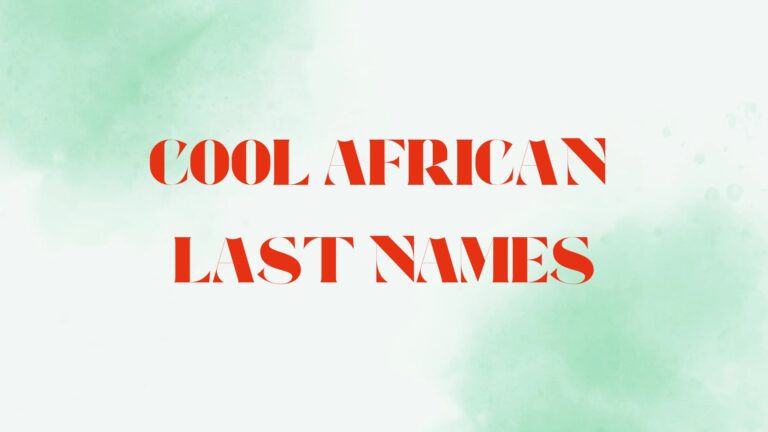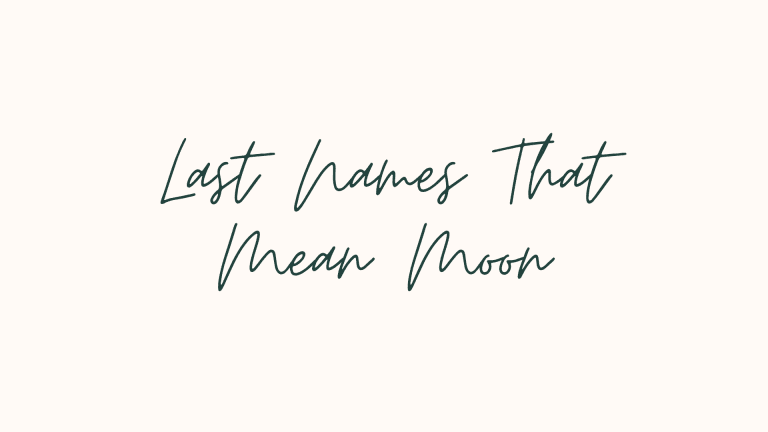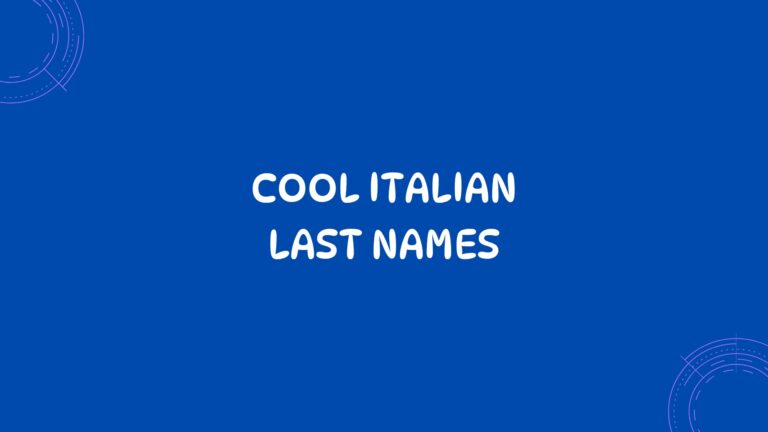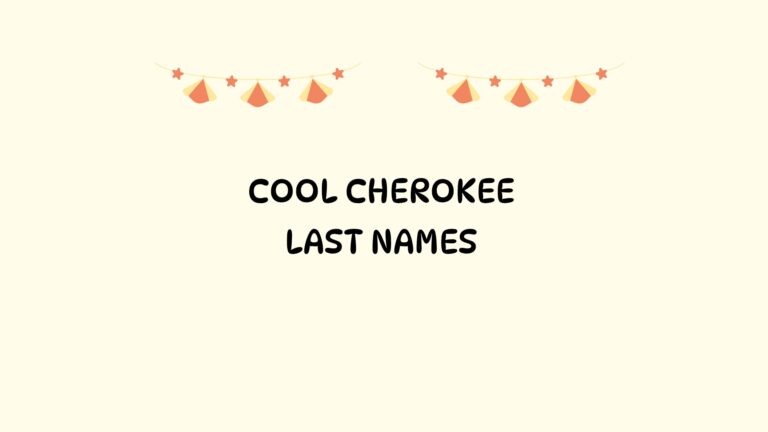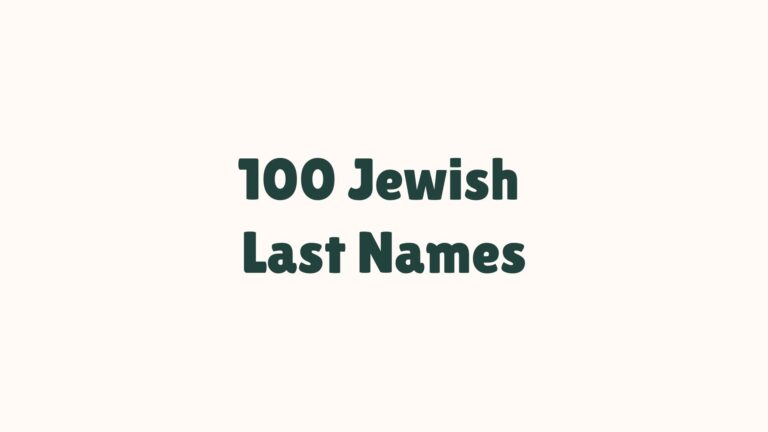100 Cool Dominican Last Names
The surnames of the Dominican Republic carry much historical and cultural significance that stem from a rich blend of Spanish, African, and Indigenous Taíno lineage.
Many Dominican surnames originated in Spain, carried over from that country during the colonial period; those that arose through migration, local influences, and events in history may have some other trajectory.
Whether researching your family’s genealogy or just being curious about the way common Dominican surnames came into being, this guide will explore their origins, meanings, and unique stories.
Dominican Last Names
Fernández – “Son of Fernando,” meaning “brave traveler” or “adventurous.”
González – “Son of Gonzalo,” meaning “battle warrior.”
Rodríguez – “Son of Rodrigo,” meaning “famous ruler.”
Pérez – “Son of Pedro,” meaning “rock” or “stone.”
Martínez – “Son of Martín,” meaning “warlike” or “dedicated to Mars.”
López – “Son of Lope,” meaning “wolf.”
Sánchez – “Son of Sancho,” meaning “holy” or “blessed.”
Ramírez – “Son of Ramiro,” meaning “wise and famous.”
Torres – Means “towers,” often indicating someone who lived near a tower.
Díaz – “Son of Diego,” meaning “supplanter” or “teacher.”
Reyes – Means “kings” or “royalty.”
Castillo – Means “castle” or “fortress,” often signifying nobility.
Ramos – Means “branches” or “bouquets,” symbolizing strength and growth.
Cruz – Means “cross,” often linked to religious devotion.
Ortiz – “Son of Orti,” possibly meaning “fortunate” or “brave.”
Mendoza – Means “cold mountain” in Basque.
Peña – Means “rock” or “cliff,” referring to someone from a rocky area.
Hernández – “Son of Hernando,” meaning “bold voyager.”
Jiménez – “Son of Jimeno,” meaning “listener” or “he who hears well.”
Acosta – Means “by the coast” or “seaside.”
Morales – Means “mulberry trees” or “moorland.”
Rosa – Means “rose,” symbolizing beauty and nobility.
Mejía – Of Basque origin, possibly meaning “middle” or “between rivers.”
Guerrero – Means “warrior.”
Peralta – Means “high rock” or “steep cliff.”
Báez – Of Hebrew origin, possibly meaning “falcon” or “prophet.”
De la Cruz – Means “of the cross,” often a religious reference.
Guzmán – Possibly means “good man” or “noble warrior.”
Cabrera – Means “place of goats” or “goat herder.”
Delgado – Means “slender” or “thin.”
Valdez – “Son of Baldo,” meaning “bold” or “courageous.”
Pimentel – Means “pepper field” or “spice grower.”
Silva – Means “forest” or “woods.”
Figueroa – Means “fig tree.”
Vásquez – “Son of Vasco,” meaning “crow” or “raven.”
Almonte – Means “from the hill” or “high mountain.”
Burgos – Refers to the Spanish city of Burgos, meaning “fortified town.”
Montilla – Means “little mountain.”
Matos – Means “thicket” or “bushes.”
Espinal – Means “thorny bush” or “spiny place.”
Nova – Possibly means “new” or “from a new place.”
Cedano – Possibly of Galician origin, meaning “place of cedars.”
Geraldo – From Germanic origins, meaning “rule of the spear.”
Infante – Means “prince” or “young noble.”
Taveras – Of Portuguese origin, possibly meaning “place of travelers.”
Quezada – Means “cheese maker” or “curdled milk.”
Mojica – Possibly of Arabic origin, meaning “one who is free.”
Tejada – Means “roof tile maker” or “from the tiled place.”
Madera – Means “wood” or “timber.”
Sepúlveda – Means “deep valley” or “ravine.”
Arroyo – Means “stream” or “brook,” often indicating someone who lived near water.
Batista – Derived from “Baptist,” linked to religious devotion.
Beltré – Possibly of French origin, meaning “beautiful” or “noble.”
Brito – Originates from Portugal, meaning “from Brittany.”
Calderón – Means “large cauldron” or “kettle,” possibly referring to metalworkers.
Campos – Means “fields” or “countryside.”
Cáceres – Refers to a city in Spain, meaning “fortress.”
Carvajal – Means “oak forest” or “thicket.”
Castaño – Means “chestnut tree” or “brown-haired.”
Celestino – From Latin, meaning “heavenly” or “celestial.”
Cepeda – Means “abundant with cedar trees.”
Colón – Refers to Christopher Columbus (Cristóbal Colón) and means “dove” in some origins.
Cordero – Means “lamb,” often symbolizing peace or sacrifice.
Crespo – Means “curly-haired.”
De León – Means “of the lion,” symbolizing strength and bravery.
Del Rosario – Means “of the rosary,” linked to religious devotion.
Domínguez – “Son of Domingo,” meaning “belonging to the Lord.”
Durán – Means “steadfast” or “enduring.”
Estévez – “Son of Esteban,” meaning “crown” or “garland.”
Febles – Of Canary Islands origin, meaning “humble” or “frail.”
Feliz – Means “happy” or “fortunate.”
Franco – Means “free” or “frank.”
Galván – Means “spark” or “shiny metal.”
Garrido – Means “handsome” or “elegant.”
Hidalgo – Means “nobleman” or “gentleman.”
Hierro – Means “iron,” possibly referring to blacksmiths.
Iglesias – Means “churches,” indicating religious ties.
Javier – Of Basque origin, meaning “new house.”
Lara – Refers to a region in Spain, meaning “famous warrior.”
León – Means “lion,” symbolizing courage.
Liriano – Possibly derived from “Lirio,” meaning “lily” or purity.
Lora – Could be linked to “laurel” or a place name.
Marmolejos – Of Galician origin, meaning “marble quarry.”
Matías – Derived from Hebrew, meaning “gift of God.”
Montero – Means “hunter” or “mountain man.”
Montás – Of Catalan origin, related to mountains.
Moronta – Possibly of Galician origin, meaning “hilltop” or “elevated place.”
Núñez – “Son of Nuño,” meaning “advisor” or “protector.”
Olivo – Means “olive tree,” symbolizing peace.
Orozco – Of Basque origin, meaning “place of holly trees.”
Paniagua – Means “bread and water,” indicating humble origins.
Peguero – Possibly linked to a place or occupation.
Piña – Means “pineapple” or “pine tree.”
Plasencia – Refers to a Spanish city, meaning “pleasant place.”
Quevedo – Means “watchful” or “one who sees well.”
Quintana – Means “farmstead” or “country house.”
Rivera – Means “riverbank.”
Santos – Means “saints” or “holy.”
Tineo – Refers to a place in Spain, possibly meaning “dark forest.”
Villar – Means “small village” or “settlement.”


